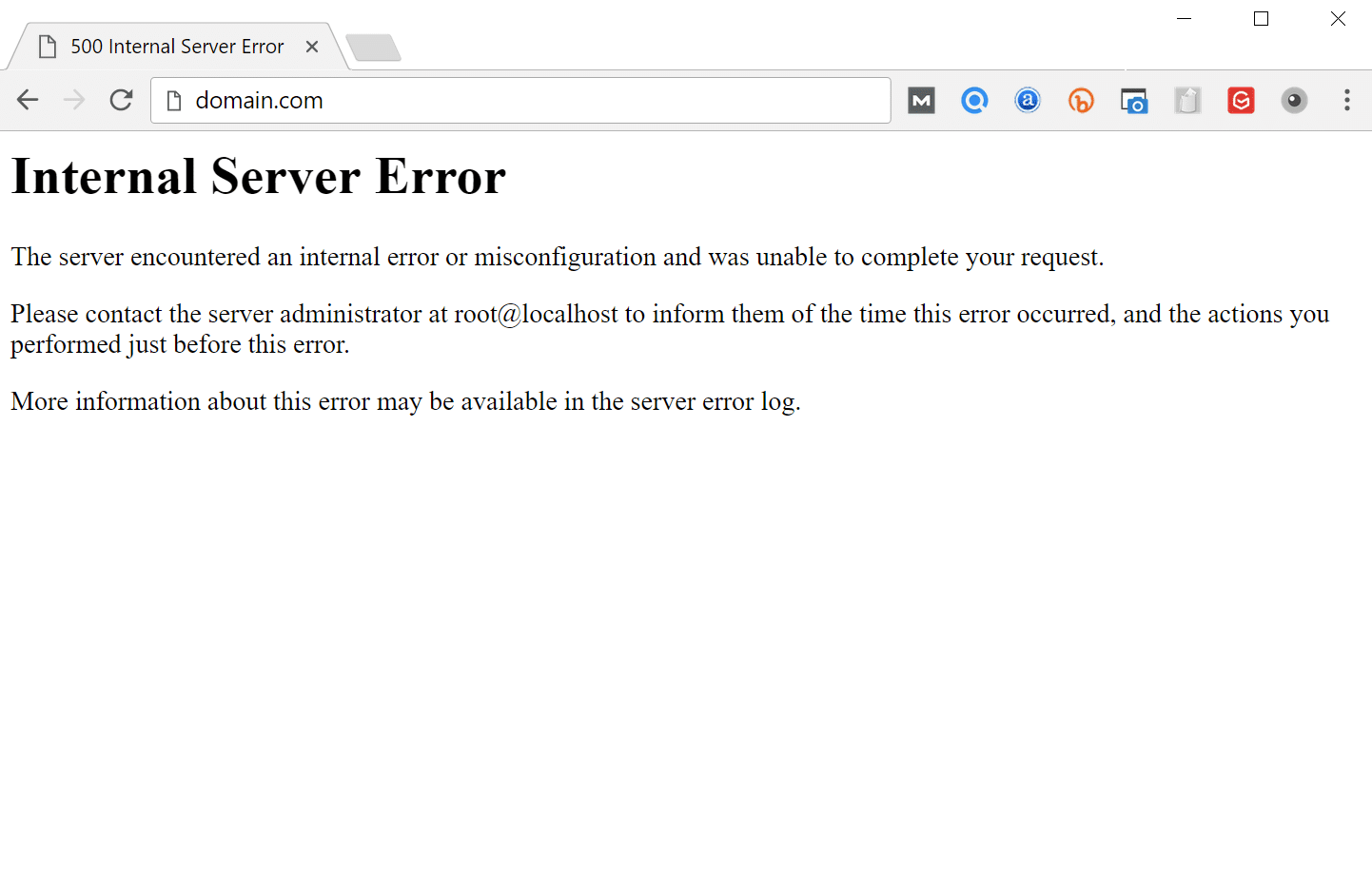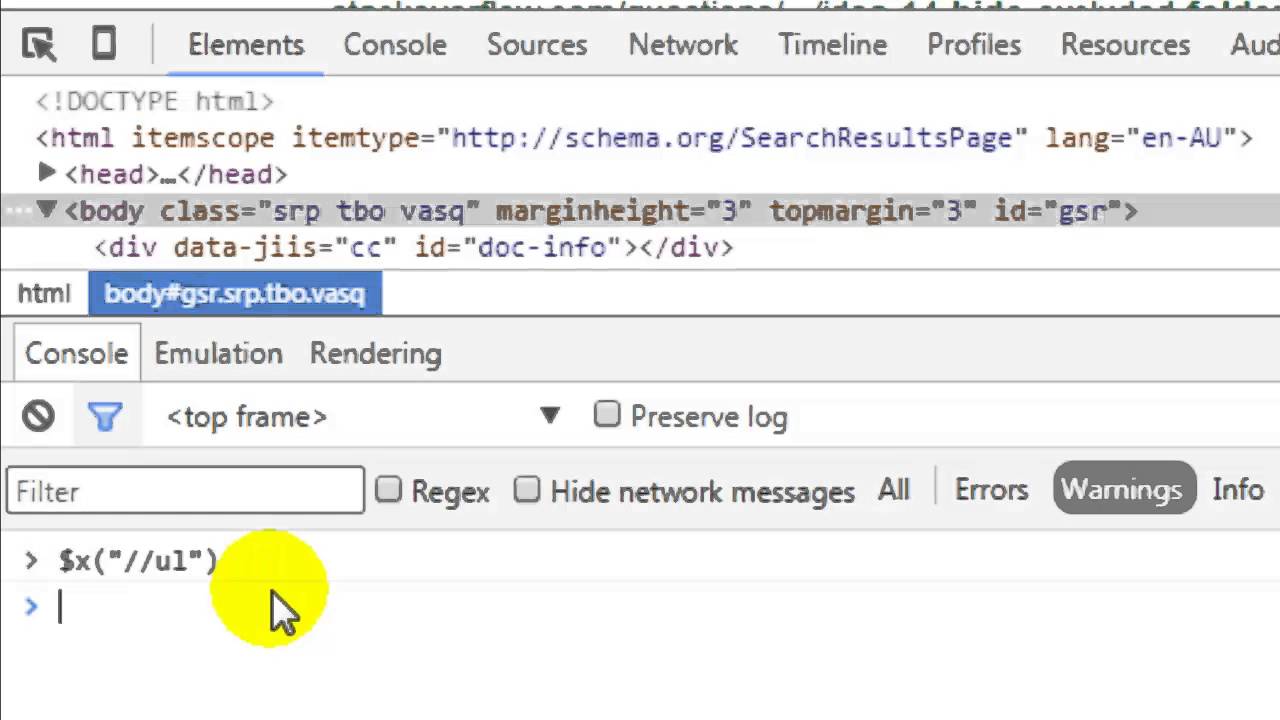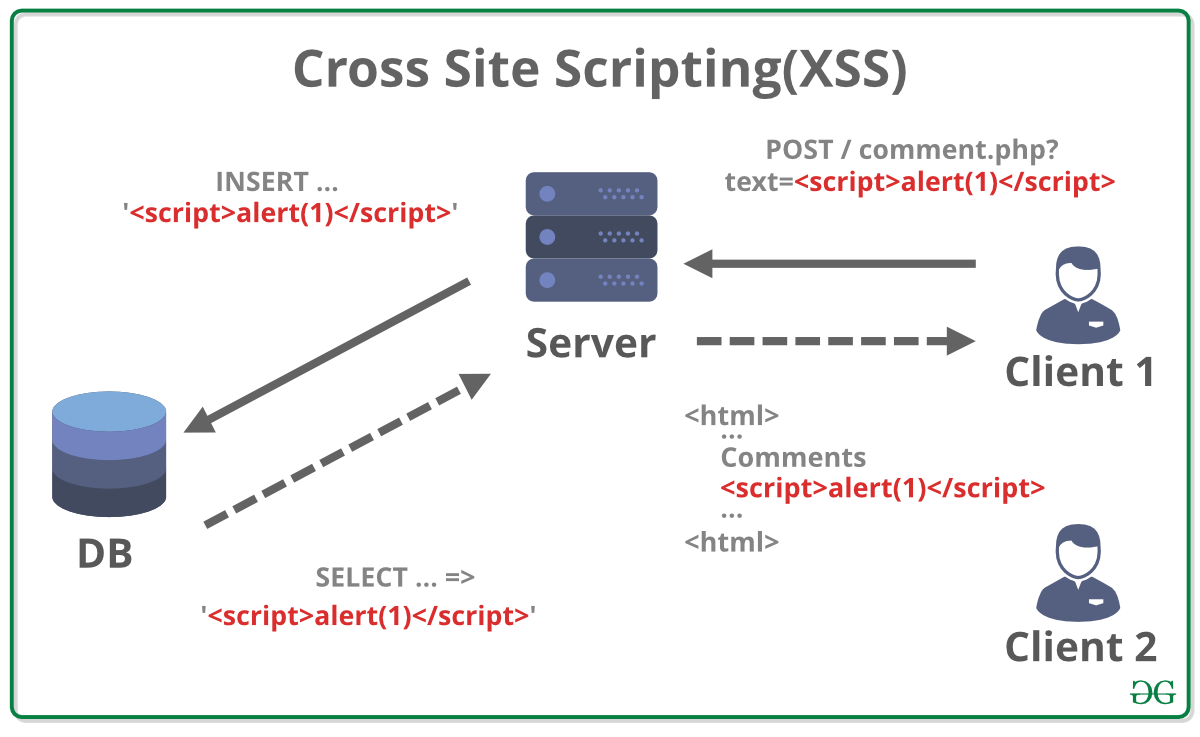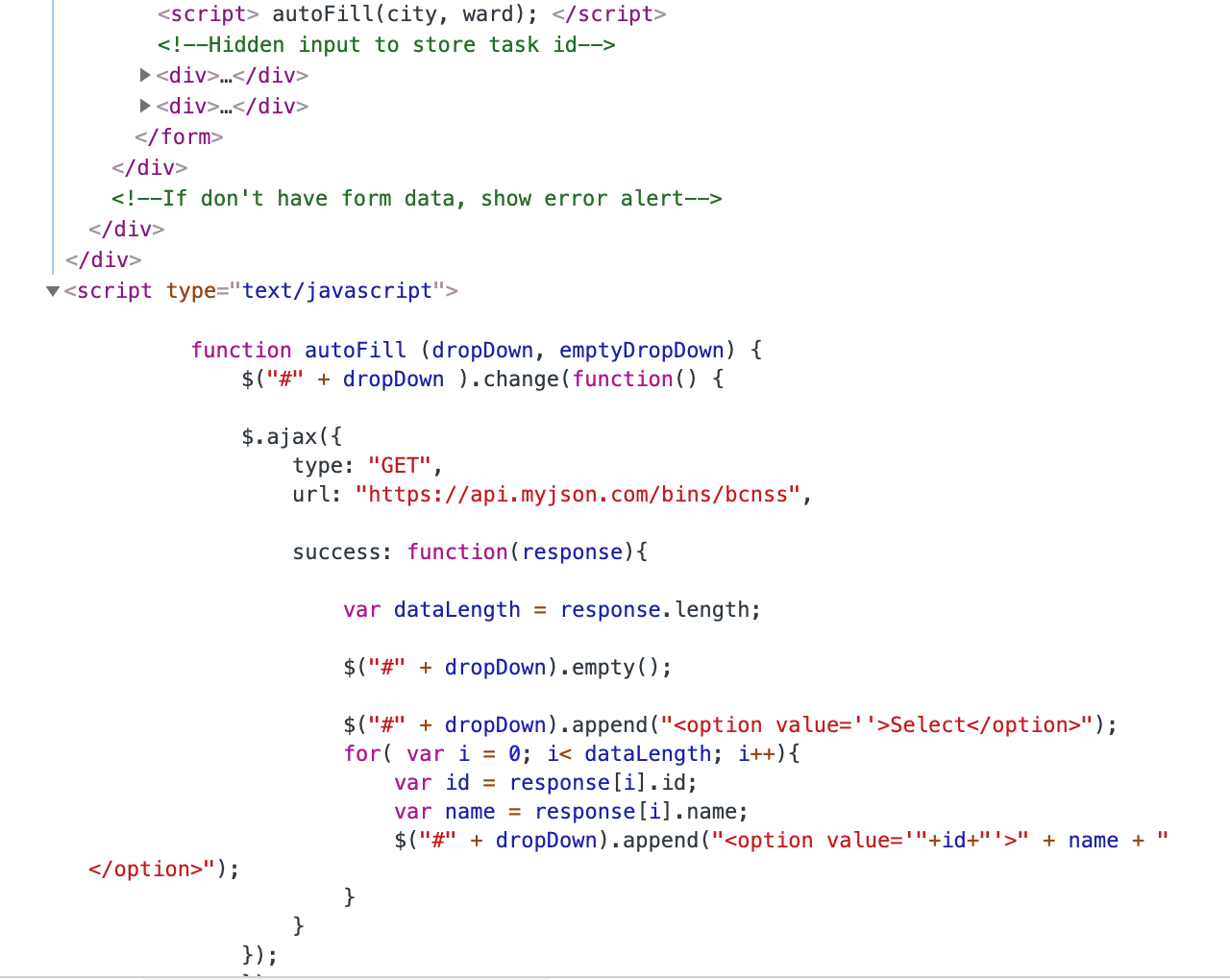What Are Scripts In Coding
Introduction
A script in coding refers to a set of instructions or commands that are written in a programming language to automate tasks or perform specific functions. It is essentially a sequence of instructions that tells a computer what to do. Scripts play a crucial role in coding as they enable developers to create dynamic and interactive applications, websites, and software.
Scripts are commonly used in various areas of coding, such as web development, software development, and system administration. They allow programmers to automate repetitive tasks, manipulate data, handle user interactions, and perform complex calculations.
Scripts work by utilizing a specific programming language syntax and are executed by an interpreter or a runtime environment that understands the language. The interpreter reads and executes the instructions line by line, performing the specified actions.
There are different types of scripts, including client-side scripts, server-side scripts, shell scripts, and database scripts. Each type serves a unique purpose and operates in specific environments. For example, client-side scripts run on the user’s device (usually a web browser) and are responsible for enhancing the user interface and interactivity, while server-side scripts execute on the server and handle data processing, server communication, and application logic.
Writing scripts involves using programming languages like JavaScript, Python, Ruby, Perl, or Bash, depending on the specific requirements and the target environment. Different programming languages have their own syntax and features, but they all serve the purpose of instructing the computer on how to perform certain tasks.
In the realm of web development, scripts are extensively used to create dynamic and interactive websites. From form validations to image sliders and interactive menus, scripts enable developers to bring functionality and interactivity to web pages, enhancing the overall user experience.
Using scripts in coding brings numerous benefits. They streamline workflows, increase efficiency, reduce manual errors, and save time and effort for developers. By automating repetitive tasks, scripts allow developers to focus on more complex and critical aspects of their projects.
When writing scripts, it is important to follow best practices to ensure code readability, maintainability, and scalability. This includes using proper indentation, commenting the code, and modularizing the script into reusable functions. Additionally, performing regular testing and debugging helps identify and fix any issues or errors in the script.
What is a script?
A script is a set of instructions or commands written in a programming language that tells a computer what to do. It is essentially a program that automates tasks or performs specific functions. Scripts are widely used in coding to streamline processes, enhance functionality, and create dynamic applications.
Scripts can be written in various programming languages, such as JavaScript, Python, Ruby, Perl, or Bash. Each language has its own syntax and features, but they all serve the purpose of instructing the computer on how to perform certain actions.
In simple terms, a script is like a recipe for a computer. It provides step-by-step instructions that guide the computer through the desired operation. These instructions can include a wide range of actions, such as manipulating data, performing calculations, interacting with users, or accessing external resources.
Scripts can be categorized into different types based on their purpose and execution environment. Some common types of scripts include:
- Client-side scripts: These scripts run on the user’s device (usually a web browser) and are responsible for enhancing the user interface and interactivity of web applications. They are written in languages like JavaScript and are used to validate forms, create dynamic content, or handle user interactions.
- Server-side scripts: These scripts execute on the server-side and handle tasks such as data processing, server communication, and application logic. Server-side scripting languages like PHP, Python, or Ruby are commonly used to build dynamic websites.
- Shell scripts: Shell scripts are primarily used in operating systems like Unix or Linux. They are written in shell scripting languages and are used to automate system administration tasks, manage files, or execute system commands.
- Database scripts: These scripts are used to interact with databases and perform operations such as querying data, updating records, or creating database structures. Database scripting languages like SQL are commonly used for this purpose.
Overall, scripts are essential tools in coding that enable developers to automate tasks, create interactive applications, and improve efficiency. By using scripts, programmers can save time and effort by automating repetitive tasks, allowing them to focus on more complex and critical aspects of their projects.
Why are scripts important in coding?
Scripts play a vital role in coding and are important for several reasons. They provide numerous benefits that enhance the development process, improve functionality, and streamline workflows. Below are some key reasons why scripts are crucial in coding:
- Automation: One of the main reasons scripts are important is their ability to automate tasks. By writing scripts, developers can automate repetitive or tedious operations, saving time and effort. This automation improves efficiency and allows programmers to focus on more critical aspects of their projects.
- Functionality: Scripts enable developers to add functionality to their applications. By utilizing scripts, programmers can create interactive user interfaces, perform complex calculations, manipulate data, or integrate with external services. This enhances the overall user experience and makes the application more versatile.
- Efficiency: Writing scripts improves efficiency in programming. Instead of manually executing each step, a well-written script can execute multiple operations simultaneously or sequentially. This saves developers from repetitive tasks and reduces the potential for human errors.
- Code Reusability: Scripts can be modularized and reused in different parts of an application or in different projects altogether. This promotes code reusability, simplifies development, and reduces the need for writing repetitive code from scratch. It also allows developers to maintain consistency and make updates more efficiently.
- Debugging and Maintenance: Scripts are easier to debug and maintain compared to larger and more complex programs. With smaller scripts, issues or errors can be identified and addressed more quickly. This makes troubleshooting and maintaining the codebase more manageable and efficient.
- Flexibility: Scripts provide flexibility as they can be easily modified or updated as per changing requirements. This agility allows developers to adapt the functionality of their applications or automate new tasks without significant code rewrites.
Overall, scripts are essential in coding as they enable automation, enhance functionality, and improve efficiency. They bring numerous benefits to the development process, making it easier for programmers to create dynamic and interactive applications while saving time and effort.
How do scripts work?
Scripts work by utilizing a specific programming language syntax and are executed by an interpreter or a runtime environment that understands the language. Let’s take a closer look at how scripts work:
1. Writing scripts: Scripts are written in a programming language using a text editor or an integrated development environment (IDE). The script contains a series of instructions or commands that specify the desired actions to be performed.
2. Compiling or interpreting: Depending on the programming language, scripts may be compiled or interpreted. Compiled languages, like C or C++, require a separate compilation step, where the code is transformed into a machine-readable format. Interpreted languages, like JavaScript or Python, do not require compilation and are executed directly.
3. Execution: The script is executed by an interpreter or a runtime environment specific to the programming language used. The interpreter reads and processes each line of the script, executing the specified instructions one by one.
4. Performing actions: As the interpreter executes the script, it performs the specified actions, such as manipulating data, displaying output, interacting with users, or accessing external resources like databases or APIs.
5. Handling program flow: Scripts often include conditional statements, loops, and functions to handle different scenarios and control the flow of the program. These control structures allow the script to make decisions, repeat actions, and organize code in a logical manner.
6. Output or result: Depending on the purpose of the script, it may produce output, such as displaying information on the screen, generating a file, or updating a database. The output is generated based on the instructions provided in the script.
Scripts can be executed in various contexts. For example, client-side scripts run on the user’s device (usually a web browser) and are executed as part of a web page or web application. Server-side scripts are executed on the server and generate dynamic content that is sent back to the client.
Overall, scripts work by providing a set of instructions or commands that are executed by an interpreter or a runtime environment. They allow developers to automate tasks, create dynamic applications, and interact with users and external resources.
Common types of scripts
Scripts come in various types, each serving a different purpose and operating in specific environments. Here are some common types of scripts:
- Client-side scripts: Client-side scripts are executed on the user’s device, typically within a web browser. The most popular client-side scripting language is JavaScript. These scripts are responsible for enhancing the user interface and interactivity of web pages. They can validate form inputs, create dynamic content, handle user interactions, and more.
- Server-side scripts: Server-side scripts run on web servers and generate dynamic web content. There are several scripting languages used on the server-side, such as PHP, Python with frameworks like Django, Ruby with frameworks like Ruby on Rails, or Java with frameworks like Spring. Server-side scripts handle tasks like data processing, database interactions, session management, and business logic. They generate the HTML, CSS, and JavaScript that is sent to the client.
- Shell scripts: Shell scripts are primarily used in operating systems like Unix or Linux. They are written in shell scripting languages such as Bash, and they execute a series of commands or scripts. Shell scripts provide a way to automate system administration tasks, manage files, execute system commands, and perform other tasks on the command line.
- Database scripts: Database scripts are used to interact with databases. They are typically written in languages like SQL (Structured Query Language) and are executed directly on the database server. Database scripts can create, modify, and query databases, define tables and relationships, manipulate data, and perform other database-related tasks.
- Build scripts: Build scripts orchestrate the build process for software projects. Common build scripting languages include Ant, Maven, or Gradle. These scripts automate tasks such as compiling source code, running tests, packaging software artifacts, and deploying the application.
- Automation scripts: Automation scripts are used to automate repetitive tasks or workflows. They can be written in various scripting languages, depending on the target platform or tools being used. Automation scripts help automate processes like software installation, data backups, file synchronization, or system configurations.
Each type of script serves a specific purpose and operates in a specific environment. Developers choose the appropriate scripting language and type of script based on the requirements of the project and the desired functionality.
Understanding the common types of scripts allows developers to leverage the right tools and languages to accomplish their coding tasks effectively.
Writing scripts in different programming languages
Scripts can be written in various programming languages, each with its own syntax and features. The choice of programming language depends on the requirements of the project, the target platform, and the specific functionality needed. Here are some commonly used programming languages for writing scripts:
- JavaScript: JavaScript is a widely used client-side scripting language. It is primarily used in web development to add interactivity and dynamic functionality to websites. JavaScript allows developers to manipulate web page elements, validate form inputs, handle events, and make asynchronous requests to servers.
- Python: Python is a versatile and powerful scripting language used for web development, scientific computing, data analysis, and automation. It has a clean and readable syntax, making it popular among beginner and experienced developers alike. Python is known for its extensive library ecosystem, which provides ready-to-use modules for various tasks.
- Ruby: Ruby is a flexible scripting language known for its focus on simplicity and productivity. It has an elegant syntax and is often used in web development, particularly with the Ruby on Rails framework. Ruby allows developers to write clean and concise code, making it easy to maintain and understand.
- Perl: Perl is a scripting language widely used for text processing, system administration, and web development. It is known for its powerful regex capabilities and ability to handle complex data manipulation tasks. Perl scripts are often used for tasks like parsing log files, processing large datasets, and automating system tasks.
- Bash: Bash is a scripting language used primarily in Unix/Linux environments. It is the default shell on most Unix-based systems and is used for automating system administration tasks, managing files, and executing system commands. Bash scripts are often used to write shell scripts for automation and task scheduling.
These are just a few examples of programming languages commonly used for scripting. Other languages, such as PHP, PowerShell, or Java, are also used depending on the specific requirements of the project and the target environment.
When writing scripts in different languages, it is important to understand the syntax and features of the chosen language. Learning the specific language’s documentation and best practices can help developers write efficient, readable, and maintainable scripts.
Ultimately, the choice of programming language for scripting depends on factors like project requirements, developer familiarity, and the desired functionality to be achieved.
Using scripts in web development
Scripts play a crucial role in web development by adding dynamic and interactive features to websites. They enhance the functionality and interactivity of web pages, creating a better user experience. Here are some common use cases of scripts in web development:
- Form validation: Client-side scripts, often written in JavaScript, are used to validate user inputs in web forms. They ensure that users provide the correct format and type of data, improving data integrity and user experience. Validation scripts can check for required fields, validate email addresses, enforce password complexity, and more.
- Dynamic content: Scripts enable developers to display dynamic content on web pages. By using scripting languages like JavaScript or server-side languages like PHP, developers can fetch data from databases or external APIs and generate dynamic content based on user actions or database records. This allows for real-time updates, personalized content, and interactive elements.
- User interface enhancements: Scripts are used to enhance the user interface and create interactive elements. For example, image sliders, accordions, tabs, and carousels are often implemented using client-side scripting to provide a visually appealing and user-friendly interface. Interactive menus, dropdowns, and tooltips also rely on scripts to provide a rich user experience.
- Ajax requests: Scripts enable Asynchronous JavaScript and XML (Ajax) requests, which allow web pages to communicate with servers in the background without refreshing the entire page. This allows for dynamic content updates, interactive forms, and faster user interactions, resulting in a seamless user experience.
- Client-side data processing: In some cases, scripts are used to process data on the client-side to alleviate server loads. For example, JavaScript libraries allow for data sorting, filtering, and pagination directly within the browser. This reduces the amount of data transferred between the server and the client, improving performance.
Using scripts in web development brings numerous benefits, such as increased interactivity, enhanced user experience, and improved efficiency. They enable developers to create dynamic and engaging websites that respond to user actions and provide real-time feedback.
When using scripts in web development, it’s important to ensure compatibility across different browsers and devices. Testing and optimizing scripts for performance and security are also crucial to provide a seamless and secure web experience for users.
Benefits of using scripts in coding
Using scripts in coding brings numerous benefits that improve efficiency, streamline workflows, and enhance functionality. Here are some key advantages of using scripts:
- Automation: Scripts enable developers to automate repetitive tasks and processes. By writing scripts, developers can save time and effort by automating tasks such as data processing, file manipulation, software deployment, or system administration. This automation improves efficiency and reduces the potential for human errors.
- Efficiency: Scripts increase efficiency by eliminating manual work and streamlining workflows. Instead of manually executing each step, a well-written script orchestrates multiple operations, saving developers time and effort. This allows them to focus on more complex and critical aspects of their projects.
- Functionality: Scripts add functionality to applications and systems. They allow developers to create dynamic and interactive user interfaces, perform complex calculations, manipulate data, or integrate with external services. Scripts bring versatility and enhance the overall user experience.
- Code reusability: Scripts can be modularized and reused across projects or within the same project. By modularizing code into functions or libraries, developers can avoid duplicating code and increase code reusability. This saves time and effort, promotes consistency, and makes updates and maintenance easier.
- Error reduction: Scripts help reduce errors by automating repetitive tasks and enforcing consistent processes. When tasks are automated, there is less chance of human mistakes, such as typos or incorrect calculations. Scripts also allow for better error handling and logging, making it easier to identify and address issues.
- Flexibility: Scripts provide flexibility as they can be easily modified or updated as per changing requirements. This agility allows developers to adapt functionality, automate new tasks, or integrate with new technologies without significant code rewrites. Scripts can be easily adjusted to meet evolving business needs.
Overall, using scripts in coding improves efficiency, adds functionality, reduces errors, promotes code reusability, and offers flexibility. By leveraging scripts, developers can save time, automate repetitive tasks, and create more dynamic and interactive applications.
Best practices for writing scripts
Writing scripts involves more than just getting the desired functionality output. Following best practices ensures that your scripts are efficient, maintainable, and scalable. Here are some key best practices for writing scripts:
- Code readability: Write clean and well-organized code that is easy to read and understand. Use meaningful variable and function names, follow consistent indentation, and add comments to explain complex parts of the code. A readable script is more maintainable and less prone to errors.
- Modularization: Break your script into modular functions or libraries that focus on specific tasks. This promotes code reuse, simplifies troubleshooting, and allows for better organization and maintainability. Avoid writing large monolithic scripts that are difficult to understand and update.
- Use of libraries or frameworks: Leverage existing libraries or frameworks that provide commonly used functionality. This saves time and effort by avoiding reinventing the wheel. However, carefully evaluate the reliability, performance, and security of the libraries before incorporating them into your script.
- Error handling: Implement proper error handling in your scripts to catch and handle exceptions. This includes using try-catch blocks, logging errors, and providing meaningful error messages to assist in troubleshooting. Proper error handling helps identify and address issues early on.
- Testing and debugging: Regularly test and debug your scripts to ensure they function correctly and meet the desired requirements. Use tools and techniques like unit testing, code linting, and step-by-step debugging to identify and fix any issues or errors. Thorough testing helps produce reliable and robust scripts.
- Security considerations: Take security into account when writing scripts, especially when handling sensitive data or interacting with external resources. Protect against common vulnerabilities like injection attacks by sanitizing inputs and utilizing proper security measures such as encryption and authentication.
- Version control: Use a version control system (e.g., Git) to manage your scripts’ source code. This enables you to track changes, collaborate with others, and revert back to previous versions if needed. Version control is crucial for maintaining code integrity and managing multiple script versions.
- Documentation: Document your scripts to provide instructions on how to use them and explain their purpose and functionality. Include details about input/output parameters, dependencies, and any assumptions or limitations. Well-documented scripts are easier to understand and maintain by yourself or other developers.
By following best practices, you can ensure that your scripts are well-structured, maintainable, and adaptable. These practices contribute to code quality, lower maintenance costs, and a smoother development process.
Conclusion
Scripts are a fundamental aspect of coding, allowing developers to automate tasks, enhance functionality, and create dynamic applications. From web development to system administration, scripts play a crucial role in streamlining workflows and improving efficiency.
Scripts can be written in various programming languages, each with its own syntax and features. JavaScript, Python, Ruby, Perl, and Bash are just a few examples of languages commonly used for scripting. The choice of language depends on project requirements, target platform, and specific functionality needed.
Scripts bring several benefits to the development process. They automate repetitive tasks, increase efficiency, and improve functionality. Code reusability, error reduction, flexibility, and modularity are additional advantages that come with using scripts.
When writing scripts, it is important to follow best practices to ensure code readability, maintainability, and scalability. Keeping code organized, modularizing functions, employing error handling, testing and debugging, and considering security are all part of writing high-quality scripts.
In web development, scripts play a fundamental role in creating dynamic, interactive websites. They enable form validation, dynamic content, user interface enhancements, Ajax requests, and client-side data processing. Scripts help deliver a more engaging user experience and improve the efficiency of web applications.
In summary, scripts are indispensable tools in coding. By leveraging scripts, developers can automate tasks, improve functionality, reduce errors, and enhance efficiency. Mastering the art of writing scripts empowers developers to create powerful applications, streamline workflows, and drive innovation in the ever-evolving world of coding.

























